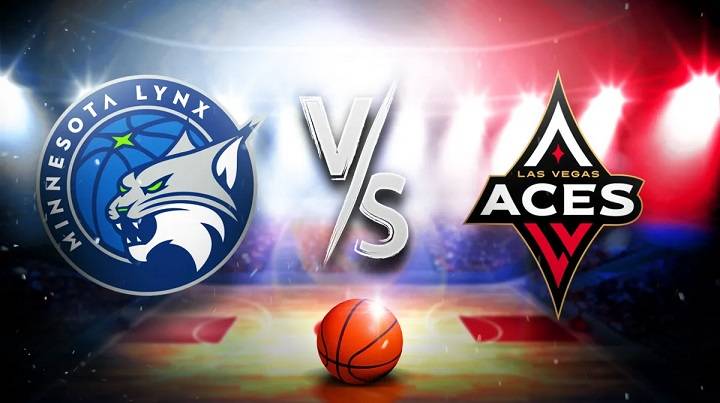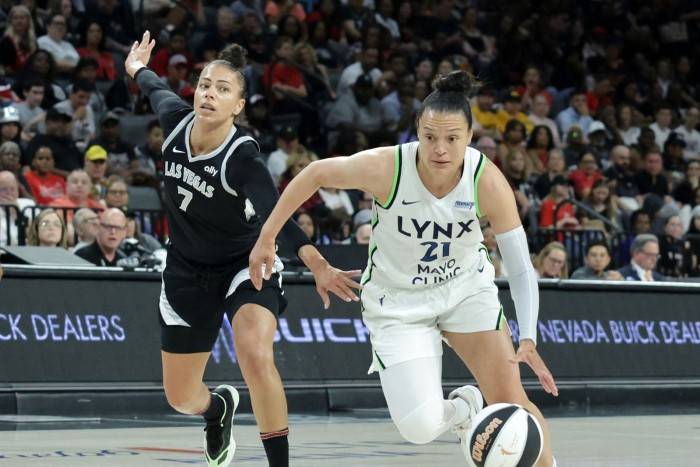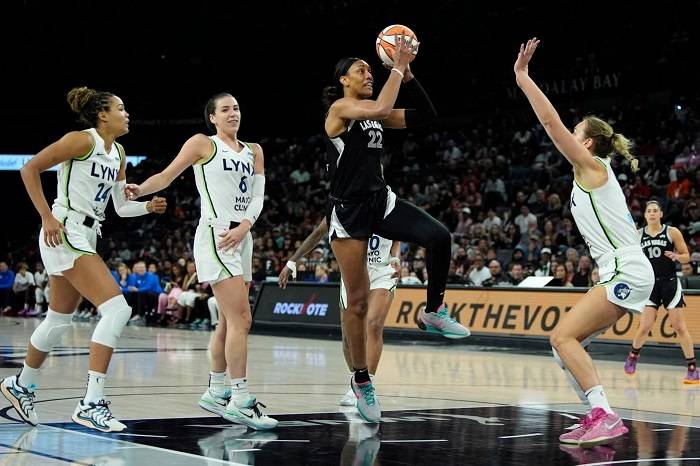The rivalry between the Lynx and the Aces has become one of the most talked-about matchups in recent years. This blog post aims to provide a comprehensive guide to this dynamic rivalry, delving into the teams’ strategies, key players, and the lessons we can learn from their gameplay. In this two-part series, we will explore the essential teachings and benefits that fans, aspiring athletes, and coaches can glean from studying these two powerhouse teams.
Understanding the Teams
Overview of the Lynx and Aces
The Minnesota Lynx and the Las Vegas Aces are two of the most successful teams in the WNBA. The Lynx, based in Minneapolis, have a rich history of success, with multiple championship titles and a reputation for developing strong, cohesive teams. The Aces, originally founded as the Utah Starzz, have seen a resurgence in recent years under new management and coaching, turning them into one of the league’s most formidable opponents.
Team Philosophies and Strategies
Both teams have distinct philosophies that guide their gameplay. The Lynx have long been known for their defensive prowess, utilizing a disciplined approach to contain their opponents. They focus on team defense, strong rebounding, and effective communication to stifle opposing offenses. On the other hand, the Aces are celebrated for their high-octane offense, leveraging speed, athleticism, and a strong inside-out game to outpace their opponents.
Key Players and Their Roles
Each team boasts a roster of talented players who contribute to their respective strategies. For the Lynx, veterans like Sylvia Fowles have anchored the team’s defense and provided leadership on and off the court. Emerging stars like Napheesa Collier have added versatility and scoring punch. The Aces, meanwhile, rely heavily on the dominance of A’ja Wilson, who provides a commanding presence in the paint, and the playmaking abilities of guards like Chelsea Gray.
Evolution of the Rivalry
The Lynx and Aces rivalry has evolved over time, marked by several high-stakes games that have gone down to the wire. Each matchup has been a chess game of adjustments, with coaches Cheryl Reeve (Lynx) and Becky Hammon (Aces) known for their tactical acumen and ability to make real-time decisions that impact the game’s outcome. This evolution has made every Lynx vs. Aces game a must-watch for fans and analysts alike.
Game Tactics and Playstyles
Understanding the tactics and playstyles of both teams is crucial to appreciating their rivalry. The Lynx’s playbook often revolves around a half-court setup, where they meticulously execute plays designed to maximize their defensive strength and control the tempo. In contrast, the Aces prefer a more fluid, fast-paced game, often using quick transitions and aggressive drives to the basket to create scoring opportunities.
Teachings and Benefits
Teamwork and Chemistry
One of the most significant teachings from the Lynx and Aces rivalry is the importance of teamwork and chemistry. Both teams have shown that individual talent alone does not win championships. It is the synergy between players, their ability to communicate effectively, and their trust in each other that truly makes the difference. The Lynx’s ability to operate as a single unit defensively and the Aces’ coordinated offensive plays are prime examples of this principle.
Adaptability and Resilience
Adaptability and resilience are other critical lessons from these teams. The Lynx and Aces have faced numerous challenges, from injuries to lineup changes, yet they have consistently found ways to adapt. This adaptability is not just about changing strategies on the fly but also about maintaining a resilient mindset. For instance, the Lynx’s ability to rebuild after losing key players to retirement or injury demonstrates a commitment to resilience and adaptability.
Leadership and Mentorship
Leadership plays a pivotal role in the success of both teams. For the Lynx, players like Sylvia Fowles have served as mentors to younger teammates, guiding them through the pressures of professional play. Similarly, the Aces benefit from the leadership of seasoned players like A’ja Wilson, who inspire their teammates through both words and actions. The presence of strong leaders helps maintain focus and morale, especially in high-pressure situations.
Embracing Diversity in Playstyles
Another lesson is the benefit of embracing diversity in playstyles. The Lynx and Aces demonstrate that there is no single formula for success. The Lynx’s defensive orientation and the Aces’ offensive focus are both valid and effective approaches, depending on the context of the game. This diversity allows for more dynamic and unpredictable matches, keeping opponents guessing and providing fans with thrilling spectacles.
Mental Toughness and Preparation
Mental toughness and preparation are key teachings from the Lynx vs. Aces matchups. Both teams emphasize the importance of mental preparation and the ability to stay composed under pressure. Whether it’s maintaining focus during a comeback or executing a game-winning play, the mental fortitude displayed by players on both teams is a testament to their rigorous preparation and psychological resilience.
Physical Fitness and Conditioning
Physical fitness and conditioning are crucial aspects of both teams’ success. The Lynx’s ability to maintain defensive pressure throughout the game and the Aces’ relentless offensive drives require top-tier conditioning. This focus on fitness not only enhances performance but also reduces the risk of injury, allowing players to perform at their best over a long season.
Innovation in Coaching
Innovation in coaching is another area where the Lynx and Aces excel. Coaches Cheryl Reeve and Becky Hammon have both been recognized for their innovative approaches to game strategy and player development. Their ability to adjust tactics based on their opponents and make real-time decisions during games has been a critical factor in their teams’ success.
Fan Engagement and Community Building
Lastly, fan engagement and community building are significant benefits arising from the Lynx vs. Aces rivalry. Both teams have robust fan bases that are deeply invested in their success. By fostering a strong community around their teams, the Lynx and Aces have been able to cultivate loyalty and create a supportive environment that extends beyond the basketball court.
Related Post:
The Lynx vs. Aces rivalry is more than just a series of basketball games; it is a masterclass in strategy, teamwork, leadership, and resilience. By studying these teams, we can learn valuable lessons that apply not only to sports but to various aspects of life. Whether you’re a coach, a player, or a fan, there is much to gain from understanding the teachings and benefits of this exciting rivalry. As the Lynx and Aces continue to clash, one thing is certain: the lessons they impart will continue to inspire and educate for years to come.




